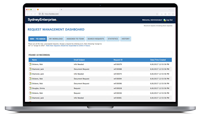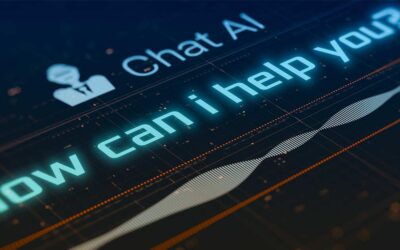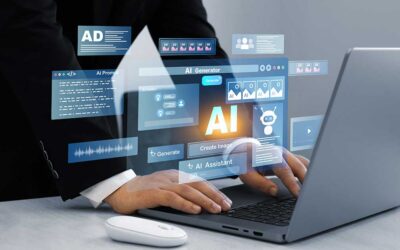Interview with the Editors: Wieland and Rogers on Interdisciplinary Archival Science
Lauren Hays
Alexandra Wieland and Corinne Rogers co-edited Archival Science in Interdisciplinary Theory and Practice. My interview with them is below.
Please introduce yourselves to our readers.
Alexandra Wieland: I’m Alexandra Wieland, and I am an archivist in Special Collections and Rare Books at Simon Fraser University Library. I am also an adjunct professor at the University of British Columbia iSchool.
Corinne Rogers: I’m Corinne Rogers. I’m the Project Coordinator for InterPARES Trust AI, which is a SSHRC (Social Sciences and Humanities Research Council) funded research project, an international multi-year research project. It has been ongoing for over 25 years—I haven’t been involved for all of that time. I am also an adjunct professor at the iSchool at the University of British Columbia.
Briefly summarize Archival Science in Interdisciplinary Theory and Practice.
Corinne Rogers: The book started with the idea that we would look for authors who have worked with Luciana Duranti over the course of her career in various capacities, either through the University of British Columbia or through her work with InterPARES. Specifically, looking at her approach and her contribution to archival theory and practice over the course of her career since the 1970s.
Alexandra Wieland: From this initial idea, we realized the projects that Luciana Duranti has been involved in touch so many different areas of both archival theory and archival practice. As the project evolved, the book became focused on looking at archival science through an interdisciplinary lens, because that is a lot of what Luciana’s career has been about. Additionally, so much of her career has been about working on an international level, and the book reflects that as well. We hope that it will appeal to both scholars and practitioners.
Corinne Rogers: I think one of Luciana Duranti’s real strengths over the course of her career has been her interest in and ability to work in an interdisciplinary way that has really broadened archival theory and practice.
Why did you decide to edit this book?
Alexandra Wieland: The initial spark for the book came from thinking about Luciana’s career as she was retiring. We asked ourselves, “How could we encompass that?” Then, we started speaking with contributors who had all these amazing insights, pulling in anything from leadership theory to more traditional archival science. Then, people also wrote about climate change, and the climate crisis and how artificial intelligence is going to impact archives.
How does having a grounding in theory inform the work of archivists?
Corinne Rogers: I think it is critical to archival work to have an understanding of the background, the history, the theory. What is a record? What is it that we are trying to preserve and to understand? All of the concepts that go into that in order to be consistent in archival work, and to uphold the archival values of the record which allow for an assessment authenticity, trustworthiness, public trust, and the ability to rely on these records over time—and to make sure they are created in a way that they can be relied on.
Alexandra Wieland: It is important for archivists to have that grounding in archival theory, because it underpins all the work that we do. I have heard many archivists say this: “Sometimes you need to know the rules in order to know when to bend them or break them.”
Different contexts will mean things need to be done slightly differently, but if you have the theory to fall back on, you can generally find a solution for any type of situation.
How can archivists and record managers use theory to address issues related to disinformation?
Corinne Rogers: It comes back to why theory is important, and it comes back to the underpinning of the development of the InterPARES project since the beginning. InterPARES is international research into the preservation of authentic records and understanding what a record is. Having that theoretical background of what a record is allows archivists to examine new record forms that arise from the affordances of new technologies. Each phase of InterPARES has dealt with a different technological advancement.
The first phase looked at records in office systems, databases, text documents, etc. Then the next phase looked at records—information—that was being recorded in dynamic and interactive systems. How do you determine what a record is? How do you figure out how to create information that can be kept as a record and trusted going into the future?
The third phase tested the findings of the first two phases in archives and records management departments with limited resources, and found that the principles articulated in Phases 1 and 2 can be applied in any situation—for personal records, or in offices and organizations large or small, regardless of available resources.
Then the fourth phase looked at cloud technologies. Specifically, it looked at how people were managing records in the cloud.
Now, this final phase is looking at artificial intelligence, and at each stage in those technological advancements, there was an increase in the ability to create deceptive records or deceptive content that was undermining public trust.
Looking at archival theory, looking at what the record is, what fundamental elements of recorded information are required in order to determine whether it is trustworthy and authentic over time is what allows us to then examine these new record forms that are being created.
As you were editing the book, was there anything that surprised you about the work others were doing?
Alexandra Wieland: I don’t know about surprised, but I was struck by the interesting work that people are doing and the breadth of areas that share important intersections with archival science.
Corinne Rogers: It was very hard to determine whom we would ask to contribute, because there is such a breadth of work going on. So in terms of surprise for me, no, because I know all of the authors, and I know the work they’re doing, and I’ve worked with them in various phases of InterPARES.
What are two things you hope all readers take away?
Corinne Rogers: I hope people will recognize the value of archival history and archival theory and the value that it brings to current work that archivists are struggling with today.
Alexandra Wieland: I hope this book will help contextualize or even recontextualize InterPARES and contemporary archival science and help people think about it in new ways. It will also show that archival science has applicability to many things we are facing in the current moment such as climate change and artificial intelligence.
Is there anything else you would like to share?
Corinne Rogers: I just apologize to all of the potential authors whom we did not ask to participate. I hope none of them is offended!
Alexandra Wieland: There are so many people who are doing great work and who have been involved in InterPARES over the past 25 years. We had to make difficult decisions given the constraints of an edited collection.
Lauren Hays
Dr. Lauren Hays is an Assistant Professor of Instructional Technology at the University of Central Missouri and a frequent presenter and interviewer on topics related to libraries and librarianship. Please read Lauren’s other posts relevant to special librarians and learn about Lucidea’s powerful integrated library systems, SydneyDigital and GeniePlus, used daily by innovative special librarians in libraries of all sizes, types, and budgets.
**Disclaimer: Any in-line promotional text does not imply Lucidea product endorsement by the author of this post.
Never miss another post. Subscribe today!
Similar Posts
ACRL’s AI Competencies for Librarians: An Overview
ACRL’s AI competencies cover ethics, AI literacy, evaluation, and responsible use. This overview summarizes each competency and how they translate across different library types.
Student Voices and Connection in the School Library
Librarian Lauren Hays shares practical, student-centered strategies school librarians can use to reflect student voices, increase library engagement, and create a welcoming library space.
Interview with the Author: Angela Fritz on AI and Digital Leadership in the GLAM Sector
Angela Fritz, author of AI and Digital Leadership, on ethical AI, stewardship, AI literacy, and the leadership skills GLAM institutions need as AI tools evolve.
Balancing Human Oversight with AI: Tips for Special Librarians
Special librarians can use AI without losing expert control. Use this practical checklist to verify accuracy, bias, sources, licensing, and fit.





Leave a Comment
Comments are reviewed and must adhere to our comments policy.
0 Comments